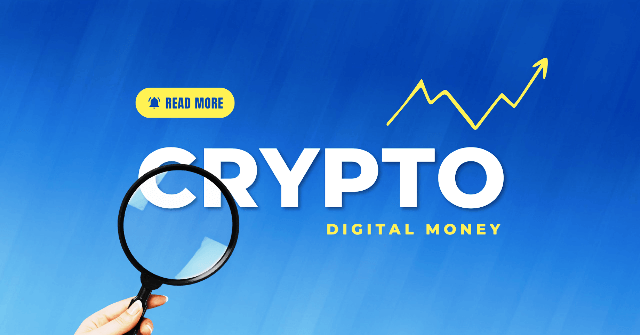Do we need blockchain technology in real life? So, in the rapidly evolving business world, this technology is an enormous boon in the digital world. In real time, the coolest applications of blockchain technology share data with transparency and are easy to make accountable for management.
In Australia, India, Russia, United States and many other countries, its applications are widely used as a digital recording and tracking system for assets.
In this blog, you’ll explore transformative benefits across the industry, so buckle up and dive into revolutionary technology.
What Is Blockchain Technology?
Blockchain is a distributed ledger which is a decentralized and transparent system for keeping secure and tamperproof records of data. This ledger works as a chain of blocks where each block contains information. It becomes difficult to change once some data has been recorded inside a block. Its key features include decentralization, transparency, immutability, and security. Bticoin was the first blockchain whereas, Ethereum was second one in the race.
Does Blockchain Technology Offer Security?
The distributed ledger technology is commonly associated with cryptocurrency, such as Bitcoin. It uses cryptographic techniques to ensure the integrity and security of the data stored on your device. So, blockchain may gain customer trust in a variety of ways.
It enables transaction security proof as every block will have its hash. Mathematical functions create hash codes. It converts digital data into an organized and secured string of letters and numbers. Hence, in any attempt to temper any block’s information, the hash code will eventually be tempered.
That’s why it is exceedingly difficult to modify the content’s block after it has been transmitted to the blockchain.
How Is Blockchain Technology Used In Different Industries?
In this digital age, the blockchain potentially aims to provide irreversible ledgers to numerous industries, including financial services. Whether it’s supply chain management, healthcare, finance, real estate, or miscellaneous industries. So, let’s delve into the world of the coolest applications of this amazing technology.
Supply Chain Management
Blockchain based supply chains empower customer trust in the marketplace. Supply chain management offers transparency and traceability and provides security. It enables real time tracking of products from raw material sourcing to the end consumer. Companies can ensure authentication efficiently and reduce fraud factors throughout the supply chain.
Inventory Management
It can make inventory management processes temper proof and secure. It enhances and identifies inventory issues such as track record of stock shortage or surplus and date of expiration. In addition to later, Blocks eliminates discrepancies and inaccuracies in inventory in(s) and out(s). Timely recording of stock movements improve customer satisfaction and ensure streamline suppliers’ relationships.
Authentication of Products
Companies utilize distributed ledgers for product authentication to combat counterfeiting and build customer trust. This innovative technology offers transparency and a decentralized and immutable ledger to track the entire cycle of production from origin to sale. Radiofrequency identification (RFID) tags provide consumers with product details, ingredients, and certification.
Making Product Reviews Transparent
Leveraging transparent product reviews offers trustworthy feedback. It allows the customer to verify feedback authenticity through a review ecosystem. Blockchain-based review systems establish decentralization networks where different nodes store feedback. It enhances its credibility and prevents alteration or deletion.
Healthcare Sector
This technology emerges healthcare as a beacon of promise. It offers a vision where patients come to the center, their privacy is safe, and their data is securely recorded and easily accessible. Let’s explore together how blockchain is transforming the healthcare sector.
Clinical Research
Clinical research leads to faster discovery of new treatments and therapies. Decentralized networks of block can enhance research protocols, trial data, and keeping records safe. It also facilitates clinical researchers’ ability to secure and share sensitive data while ensuring patient privacy and consent.
Digital Health Records (EHRs)
Digital health records (EHRs) in imputed chains offer solutions to challenges such as data security as well as patient privacy. EHRs are encrypted and stored on blocks to protect from unauthorized access. Patients have control over their EHRs and can securely share them with healthcare providers.
Monitoring The Credentials Of The Staff
The decentralized ledgers monitor and ensure credentials, certifications, and qualifications. The verification process builds trust of medical staff in the hospital and healthcare institute.
Pharmaceutical Products Distribution
As I have discussed earlier that blockchain based supply chain management ensures the security of the record of each inventory item and transaction. It is equally applicable in case of medicines. It ensures the movement of drugs from manufacturer to consumer. It reduces the risk factor of counterfeit medication.
Finance Sector
In this blog, we embark on a journey of innovation and transformation in the corporate world. The decentralized networks of blocks are also revamping the finance sector by radically influencing cross border payments, book keeping, accounting and financial services. Let’s delve into it further deeper!
Digital Currencies
By leveraging immutable ledgers, digital currencies cure peer-to-peer transactions without the need for intermediaries like banks. It integrates the privacy of transactions while empowering individuals with greater control over their finances. Bitcoin, Ethereum, Ripple, USD coin and Litecoin are famous crypto currencies.
Cross Border Payments
Cross border payments via digital networks streamline international transactions. It reduces cost and processing times faster than traditional banking. Now, businesses are using crypto wallets and exchanges for making overseas payments. Whereas, Binance is the widely used exchange for this purpose.
Regulatory Compliances
Blockchain-based regulatory compliance enforces automated procedures and audit trails. Immutable records ensure adherence to legal requirements and standards in various industries.
Smart Contracts
Smart contracts in blockchain world enforce business agreements. It facilitates predefined conditions that minimize disputes between parties. Such contracts save time because of fast and secure execution. Their execution is independent of manual approval of the parties.
Assets Management
Asset management provides customers with a platform for tracking, trading, and managing various types of assets, from real estate to digital tokens.
Real Estate
In the realm of real estate, blockchain is empowering individuals to own a piece of their dream. It’s breaking down the traditional landscape of real estate. Therefore real estate is transforming from fractional ownership and tokenization to transparent property transactions and immutable digital ledgers. Let’s uncover this emerging application with us.
Ownership And Tokenization
Ownership and tokenization enable the fractional ownership and digitization of assets. Over the network of nodes, a digital token represents ownership rights, enhancing asset market liquidity. Physical properties become NFTs (non-fungible tokens) in crypto transactions.
Loan And Mortgage Security
Loan and mortgage security mitigate the fraud risk and enhance trust between lenders and borrowers. The terms and conditions are executed according to predefined criteria.
Land Registration
Blockchain technology revolutionizes the land registration process. It ensures the accuracy of property records, improving access to secure land tenure. It eliminates the centralized registries and reduces administrative overhead.
Miscellaneous Industries
Blockchain empowers and collaborates across miscellaneous industries. It enhances digital identity and supply chain transparency. Get ready to intertwine how blockchain reshapes various sectors.
Voting
In parliaments and large organizations, decisions are made through voting and governance processes. For this purpose the use of the decentralized platforms offers individuals to participate in decision-making. Decentralized autonomous organizations (DAOs) and token based voting system allow stakeholders to vote on proposals, elect representatives, and govern the ecosystem.
Education
Education plays a pivotal role in reshaping the future workforce and fostering innovations in various industries. Blockchain aims to prepare skilled professionals who have knowledge of this rapidly evolving landscape. You can get courses and certifications, workshops, and online tutorials to harness blockchain’s power. It covers topics such as cryptography, distributed ledger technology, smart contracts, and decentralized applications.
Energy Trading
As we know, blockchain-based energy trading allows consumers to buy and sell excess energy directly to each other. Due to this approach, it reduces transaction costs and makes possible tamper proof tracking of energy transactions efficiently.
Insurance
Integrating blockchain into the insurance sector will gain customer trust transparently. By leveraging immutable ledger, insurance companies offer solutions to fraud and inefficiency. Thus, insurance companies can streamline policy issuance, claim processing, and underwriting. The smart contract is one of the blessings of blockchain. Such contracts automate insurance agreements and enhance the speed of claim settlement.
Media
Blockchain empowers media companies to revolutionize content creation and consumption. The media sector can track content ownership and copyright. Make sure that creators receive proper compensation for their work. It enhances transparency by providing verifiable records, licensing agreements, and distribution channels.
FAQs – Frequently Asked Questions
What Are Some Cool Applications Of Blockchain Technology?
Blockchain serves numerous cool applications in different industries, including financial services. Cryptocurrencies, supply chain management, smart contracts, digital identity, healthcare systems, and voting systems are some notable applications that share benefits across the industry.
How Is Blockchain Technology Transforming Various Sectors?
Blockchain technology is transforming various sectors by paving the way for new business models and innovative opportunities. It is a revolutionary service that provides secure transactions, enhances traceability, reduces fraud, and facilitates authentication.
Which Language Is Used In Blockchain?
Java is a popular language for programmers of blockchain technology. It is optimal in back end programming. It uses c-syntax, smart contract development tools, and dApp creation functionality.
Final Thoughts
As a final thought, blockchain evolves the tech world into a new era of empowerment. Blockchain applications share diverse new possibilities across various industries. It unlocks the finance industry with decentralized (DEFi) transparency and trust. Whether non-fungible tokens (NFTs), smart contracts, or autonomous organizations (DAOs) further showcase the potential of blockchain. So we can say it is not just technology. It’s about creating a better future.



